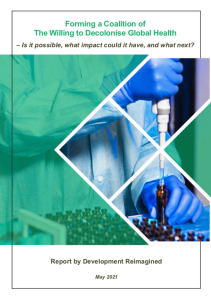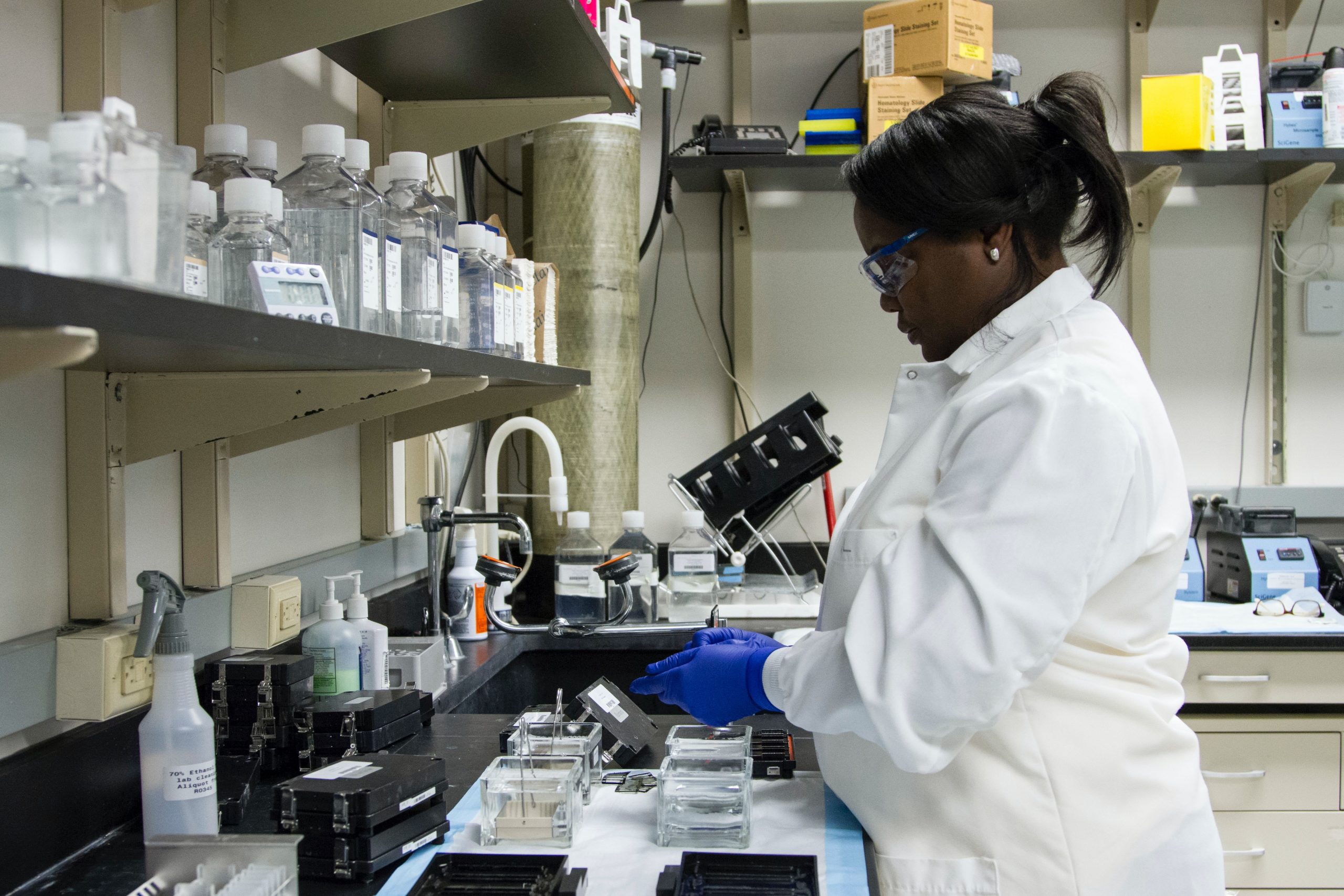The COVID-19 pandemic along with the Black Lives Matter movement has amplified the structural and institutional cases of racism, the “white gaze”, power imbalances and systemic lack of ownership in most if not all sectors – including the development and global health sector. Yet, COVID-19 also offers an opportunity to deconstruct and refine global health processes, in line with the “Build Back Better” campaign.

In this context, “ Forming A Coalition of The Willing To Decolonise Global Health – Is It Possible, What Impact Could It Have, And What Next?” published by Development Reimagined, and supported by the Open Society Foundation, aims to promote cooperation between global health stakeholders – both small and large – to take concrete steps towards decolonisation. It examines and proposes a holistic practical framework for use by all global health organisations working in Africa and other LMICs by extension to follow in their decolonisation journey.
The report includes the results of an in-depth evidence review, an anonymous survey, expert interviews and two informal policy dialogues.
The recommendations from the report are centred around five themes which featured frequently in participating organisations’ decolonisation challenges:
- Knowledge production in global health
- Global health processes
- Governance in global health
- Procurement in Global health
- Global health in the wake of COVID-19
Although the report shows that a great deal of “decolonising” change is already happening – organisations are reflecting, becoming more transparent about these issues and recognising internal areas that require rebalancing – the report also highlights that progress on reform has been limited.
Why? Firstly, the research did not find one global health organisation that is convincingly dismantling colonial structures in a holistic way. Some are putting more focus on diversity and inclusion, others on shifting the research agenda. This means there are gaps.
Secondly, many highly influential organisations are not engaged in this topic or have expressed scepticism towards the decolonial agenda.
Finally, of those engaged, there remains a risk that leading global health organisations are seeking to shape the narrative to avoid the most uncomfortable and structural changes required, either because they are difficult or they do not understand why they matter in the long-term.
By publishing this report, Development Reimagined are the first Development Organisation to come up with a simple, engaging framework to ensure global health organisations can and do take a holistic approach to solving these issues and ensure progress can be tracked globally. The framework provides ideas for solutions and actions that will help stakeholders interrogate and shifting systems of power—global, national and local, interpersonal and institutional in global health projects, and that can also be monitored transparently.
The report provides the basis for a practical, solutions-oriented “coalition of the willing” to tackle decolonisation in global health to go forward, make change, track progress, and inspire others to join the coalition and create long-lasting solutions across the sector.
The report is only the starting point. Decolonisation will not be easy or pleasant; it will be uncomfortable for both the groups in power and those striving to leave deleterious colonial shadows behind. However, when it is achieved, it will ease the birth of a newer, more equitable global health system – a system urgently needed.
Download the report:
For more information email: clients@developmentreimagined.com
May 2021


